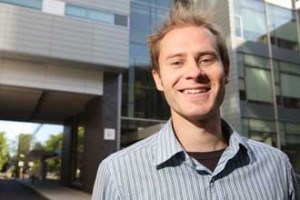
By Pekka Maattanen
When I hear politicians talk about translational research, I often wonder what they really mean. The generic, well-rounded and perhaps too well rehearsed answer goes something like this: “We are striving to make breakthroughs in science that can provide real benefits to the health of Canadians and people around the world.” The real difficulty in research lies within that statement – translating discoveries from the lab bench into something that benefits a patient.
Discoveries in the life sciences are occurring at an unprecedented pace and there is no denying that some advances have lead to real therapeutics and even real improvements in patient care and treatment outcomes. However, there are still tremendous gaps in our understanding of fundamental life processes and often a discouraging disparity between promising scientific breakthroughs and desperately sought-after therapeutics. Somehow, the links from breakthroughs to benefits get lost in the translation.
McGill is now equipped with a facility that will foster close ties across the spectrum of research from basic discovery to clinical application. The question is, will we as researchers be open minded enough to take full advantage of this forum for scientific exchange with colleagues in diverse fields? I believe it is our mandate to communicate our research and openly exchange ideas with the sole purpose of improving the health of humanity for generations to come.
Just to get a glimpse of the challenges we face, we need only to look at the health crisis in the United States, where disease rates continue to rise. Earlier this month, Time Magazine reported that one in two American men will be diagnosed with some type of cancer during their lifetime. A 2007 Milken Institute report showed that chronic disease cost the U.S. a whopping $1.3 trillion in 2003, mostly due to lost productivity. On the current path, this figure is expected to nearly double by 2013. This is without mentioning the AIDS crisis in Africa, antibiotic resistant bacteria, malaria, other diseases that still plague less developed countries, and so called “orphan” diseases abandoned by big Pharma because there are not enough people affected to make the pursuit of cures financially rewarding.
Given the staggering impact of disease on all aspects of life, it is not surprising that people are desperate to use whatever means necessary to find cures. However, as researchers, we must also be open to do basic research on prevention. In my opinion, our biggest gains for the future will be in understanding principles of prevention so that appropriate policies can be implemented to better equip our populations with the best knowledge possible to avoid disease. A stellar example of this approach is McGill’s own Dr. Ann Macaulay, who recently received the “Family Medicine Researcher of the Year” award for, among other things, her work on prevention of type 2 diabetes in Aboriginal communities.
It is my hope that researchers will take advantage of the Life Sciences Complex to foster new connections between basic studies and the most effective treatment and prevention of disease. Tremendous effort is directed toward the discovery of novel drug targets. Basic researchers like myself understand that viable targets are not easy to uncover. In fact, a more effective approach seems to be to use massive libraries of chemical and genetic tools toward a specific desired outcome. If the desired outcome is achieved, results can be rapidly disseminated to experts poised to move forward to clinical settings. At the same time, basic research continues to uncover how the treatment works and what could make it better.
We need to maintain strong basic research, but we should also use our tools to understand broader environmental determinants and treatments of disease. I think we are reaching a crossroads where we have to communicate effectively as basic researchers, but also apply multiple solutions to tackle the most basic problems. The new McGill Life Sciences Complex, with its interconnected sunlit labs and multidisciplinary community, will surely provide an excellent forum to translate basic research into practical applications that will improve health. It is this translation that can propel McGill to the forefront of healthsciences discovery.
Pekka Maattanen is a Ph.D student in the Biochemistry Department studying redox enzymes and protein folding.
